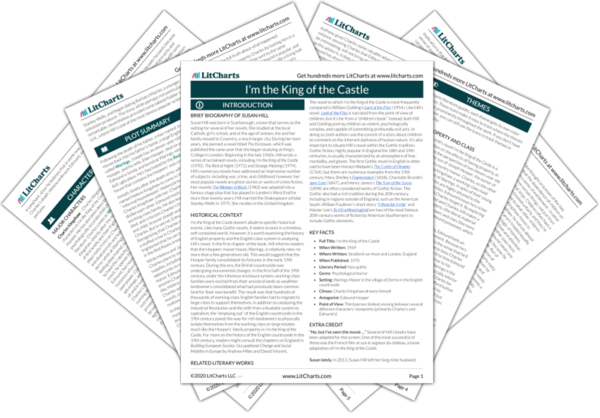Here, Charles again makes the mistake of giving up too early. Because of Edmund’s bullying, Charles feels alienated from everyone, even Fielding and Helena. He just wants to be by himself, and his means that he pushes Fielding away. This in turn causes Fielding to become closer with Edmund. In short, Charles believes that Edmund has emerged victorious already, and this belief
causes Edmund to emerge victorious.
